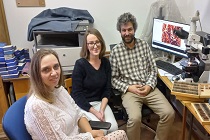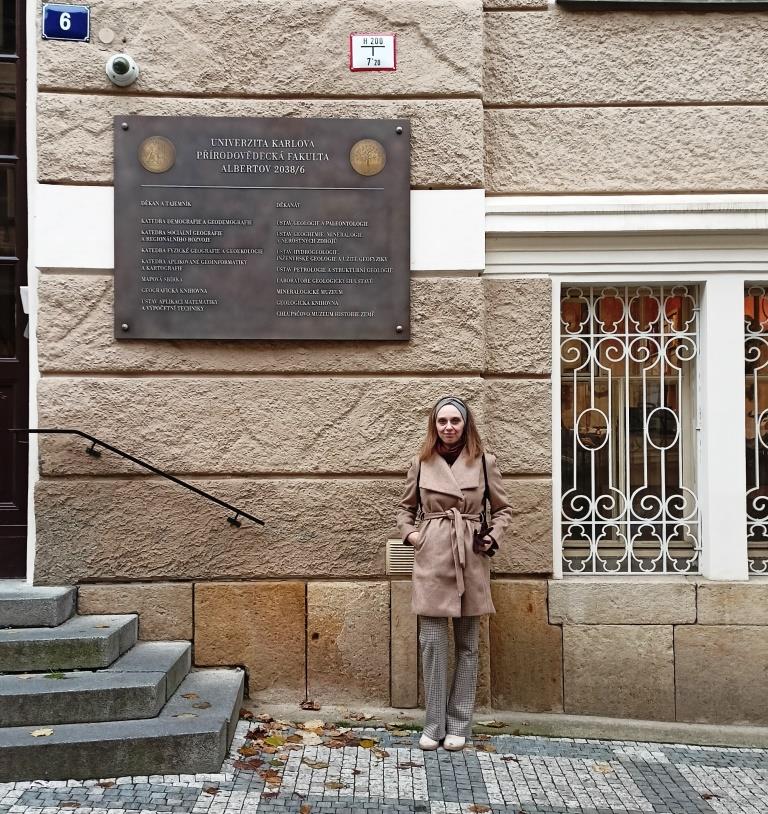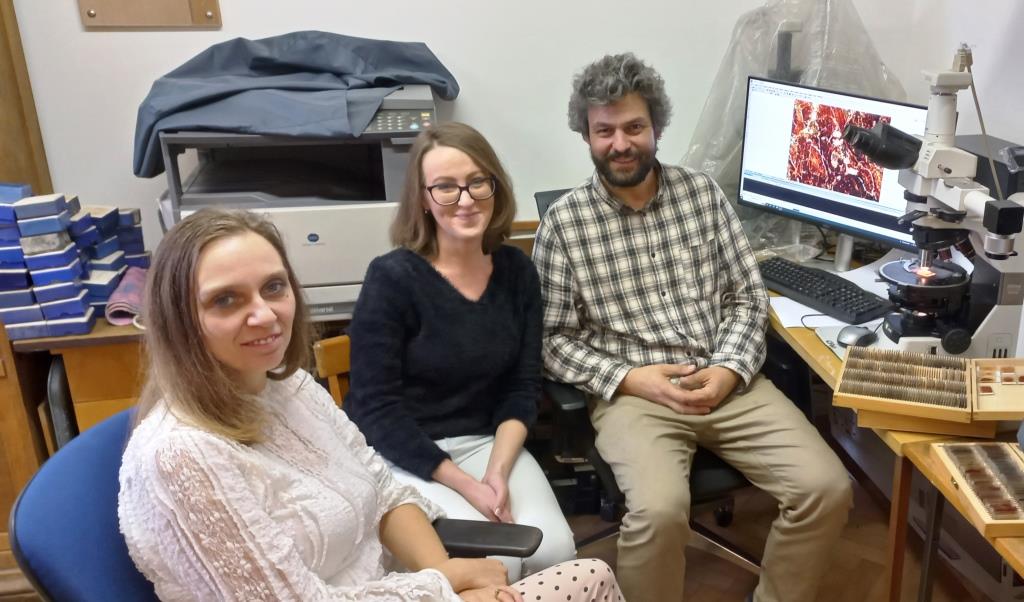 The Polish Geological Institute – National Research Institute received funding this year from the National Science Centre (NCN) under the WEAVE-UNISONO competition for a research project entitled "Integration of the stratigraphy of the late Palaeozoic of the eastern equatorial Pangea" in cooperation with the Institute of Geological Sciences of the Polish Academy of Sciences, Charles University in Prague, the Czech Geological Survey, the Institute of Geophysics of the Czech Academy of Sciences and Palacký University in Olomouc.
The Polish Geological Institute – National Research Institute received funding this year from the National Science Centre (NCN) under the WEAVE-UNISONO competition for a research project entitled "Integration of the stratigraphy of the late Palaeozoic of the eastern equatorial Pangea" in cooperation with the Institute of Geological Sciences of the Polish Academy of Sciences, Charles University in Prague, the Czech Geological Survey, the Institute of Geophysics of the Czech Academy of Sciences and Palacký University in Olomouc.
The project is headed by dr Janusz Jureczka, supported by dr Weronika Nadłonek (in the field of geochemistry) and dr inż. Beata Naglik (in the field of mineralogy and petrography) on behalf of the Upper Silesian Branch of PGI-PIB.
The objective of this project is to analyse cyclicity of sedimentation in coal basins of Europe with varied geo-tectonic structure, in particular in the Upper Silesian Coal Basin (GZW), from the point of view of mechanisms determining the formation of specific stratigraphic sequences (climate, subsidence, rate of clastic material supply, vegetation, glacieustasy), in relation to an overriding factor which presumably may be periodical changes in Earth's orbital parameters (Milankovitch cycles). By analysing the data from selected stratigraphic intervals, it should be made possible to distinguish between the allo- and autocyclic sedimentation.
Furthermore, an accurate date referencing of tuff rocks (CA-ID TIMS, SHRIMP), which are important correlation horizons, will enable radioisotopic calibration of the currently accepted stratigraphic boundaries (biozones).
Fossil soils from selected boreholes will be identified and described, and then subjected to detailed geochemical studies to reconstruct the climatic conditions prevailing during their formation. The project will also contribute to the reinterpretation of current views on the stratigraphy and facies development of the major coal basins of Europe.
The project will allow to address some issues of regional importance, such as the nature of the declining sedimentation of the coal-bearing formations of the Cracow Sandstone Series and their transition to carbonless formations of Kwaczała arkose. The conceptual and interpretive scope of the project is therefore very broad, touching on both strictly regional considerations and fundamental questions about the nature of the Solar System and the laws that govern it.
Under the grant, the Upper Silesian Branch of PGI-PIB in Sosnowiec purchased a polarising microscope for mineralogical-petrographic observations in reflected and transmitted light, which will be used to study the fossil soils and pyroclastic rocks of the Upper Silesian Coal Basin (GZW). In 2022, several meetings were successfully held in Olomouc, Krakow, Sosnowiec and Prague, which contributed to the organisation of the work and the exchange of experiences of the grant participants at both Polish and Czech institutions. Numerous discussions were held to define the scope and methodology of the research work and to set out the tasks for each of the research teams.
In October 2022, the guests from the Czech Republic arrived at the NAG geological sample archive in Kielniki, where, together with a team from Poland, they profiled cores from selected GZW boreholes. The work resulted in the selection of samples for further geochemical, mineralogical, petrographic and isotopic studies.
On 21-25 November, dr Weronika Nadłonek and dr inż. Beata Naglik participated in a working meeting on the organisation of analytical work under the project. A series of meetings were held at Charles University in Prague and at the headquarters of the Czech Geological Survey, where the status of the work to date was discussed. The talks also focused on optimising further activities to achieve the project's objectives in the following year of implementation.

Dr inż. Beata Naglik in front of the Faculty of Natural Sciences at Charles University in Prague
Moreover, the delegates attended a workshop on microscopic studies of fossil soils. The Polish team acquired a working knowledge of microscopic observations of fossil soils and the ability to recognise the basic textural features of these rocks and their mineralogical composition. Methodological issues related to the selection of samples for detailed geochemical analyses were also discussed and further interpretative possibilities related to the use of the scanning electron microscope were highlighted.

Dr inż. Beata Naglik, dr Weronika Nadłonek and dr Richard Lojka during a workshop held at the Czech Geological Survey
It is planned to analyse and interpret the results and disseminate them in the form of scientific articles and conference presentations in the following years of the project..
The research project No. 2021/03/Y/ST10/00075 is funded by the National Science Centre.














 PGI-NRI offer
PGI-NRI offer Mineral resources of Poland
Mineral resources of Poland  Oil and Gas in Poland
Oil and Gas in Poland 



 Subscribe to RSS Feed
Subscribe to RSS Feed